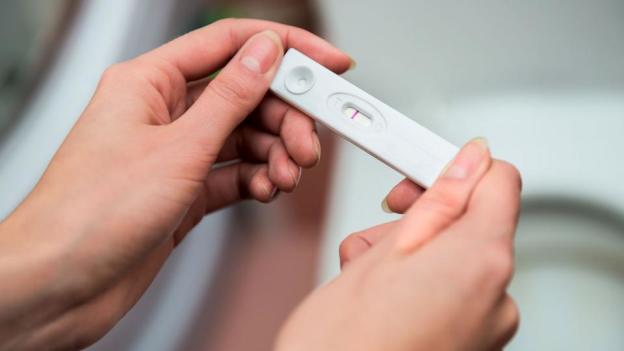1. Above Average Waking Temperature
Each of us has an average range of waking temperature. To know your average, set your alarm for the earliest time you wake up, but after you will have gotten at least four solid hours of sleep. Keep the same thermometer right next to your bed and take your temperature before you get up (or take a drink of water or even move around.)
Chart the temperatures each day (there are several free apps that can help!) You’ll notice that when you ovulate, your temperature spikes in order to house the egg. After ovulation and before you period starts, the temperature will drop back into the average range. But if it stays elevated, you’ll know your body has not released the egg. Bingo!
2. Breast Tenderness
The surge of estrogen and progesterone cause the breasts to retain fluid and feel heavier. Most women report that they are more sore and tender, even very early in pregnancy.
This was my first sign of pregnancy both times. The first time I passed it off as soreness from a jump rope workout. The second time it was most intense when I was nursing my toddler, even within days of fertilization — enough tenderness to make me catch on much sooner!
3. Implantation Bleeding
Around six to twelve days after fertilization, an egg will burrow into the uterine wall. This implantation can cause light bleeding.
Some women do not notice any bleeding and others mistake this for a very light, delayed period. If you’re tracking your cycle, as mentioned above, you will be able to see that your temperature indicates your body is not releasing an egg.
4. Frequent Urination
This was also one of my first symptoms both times. I rarely wake up in the night, but early in pregnancy I started having to get up to pee.
This is caused by extra blood flow which tells the kidneys to produce more urine. This symptom may alleviate as pregnancy progresses, but only until the baby grows big enough to put pressure on the bladder. Midnight trips to the bathroom are pregnancy’s bookends!
5. Cervical Fluid after Ovulation
This is also something I learned from the Fertility Awareness Method. During ovulation, cervical fluid is clear and stretchy. This facilitates sperm travelling easily to the waiting egg.
After ovulation, women typically notice no cervical fluid until their period begins. But, if the egg is fertilized, women may notice a constant presence of cervical fluid, even after ovulation.
6. Heightened Sense of Smell
Some women notice this change in the first few weeks of pregnancy. There are different theories about why this happens.
One is that the increased blood volume causes receptor signals to travel faster and in larger quantities to the brain. This may also the culprit for new food aversions. Too much of a good thing may not be a good thing, at least in this case!
If you notice that the smell of sausage sizzling on the stove in the morning turns your stomach instead making your mouth water, you may add this to your list of suspicious symptoms!


